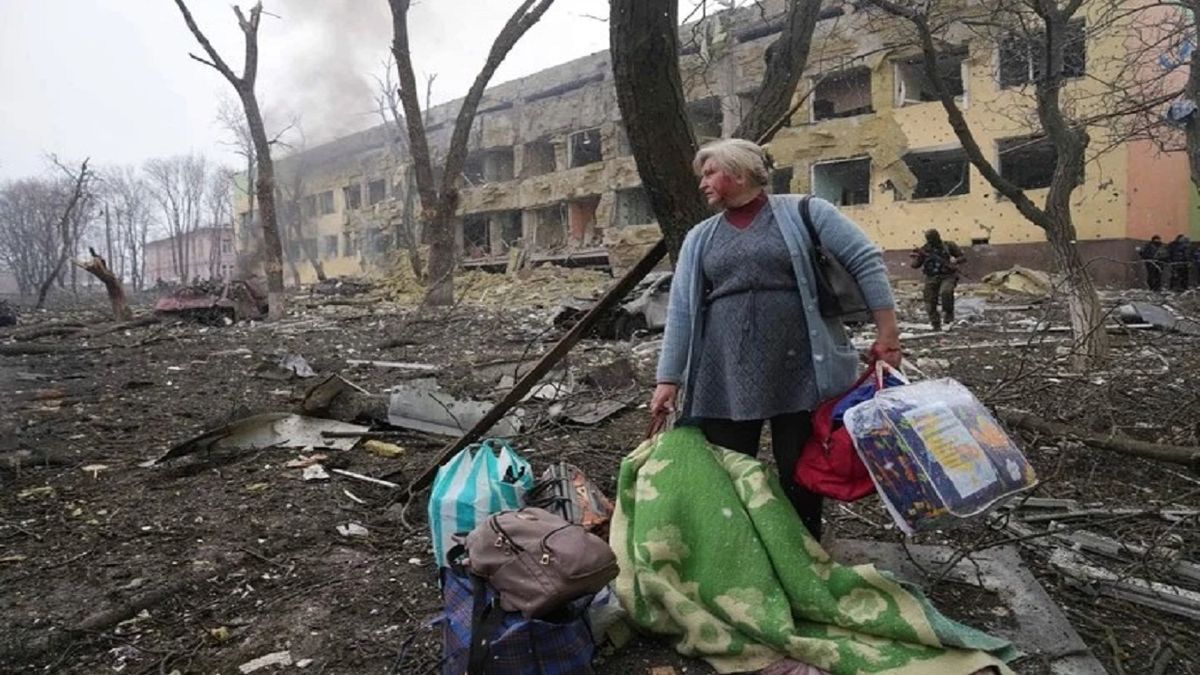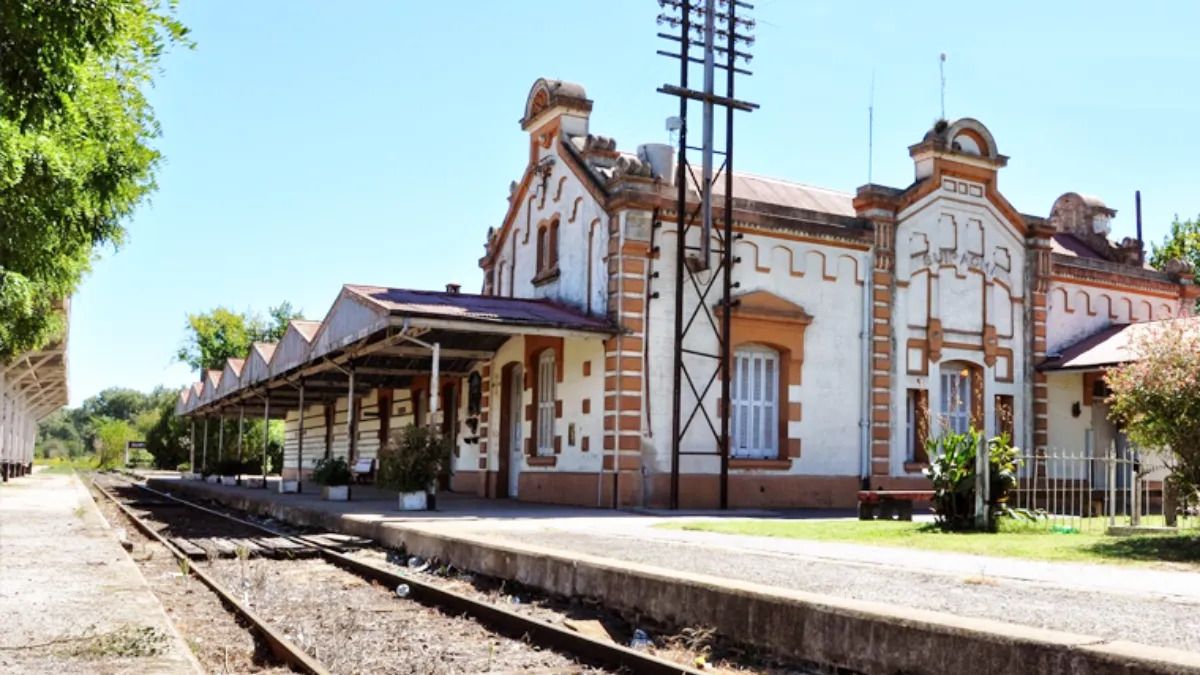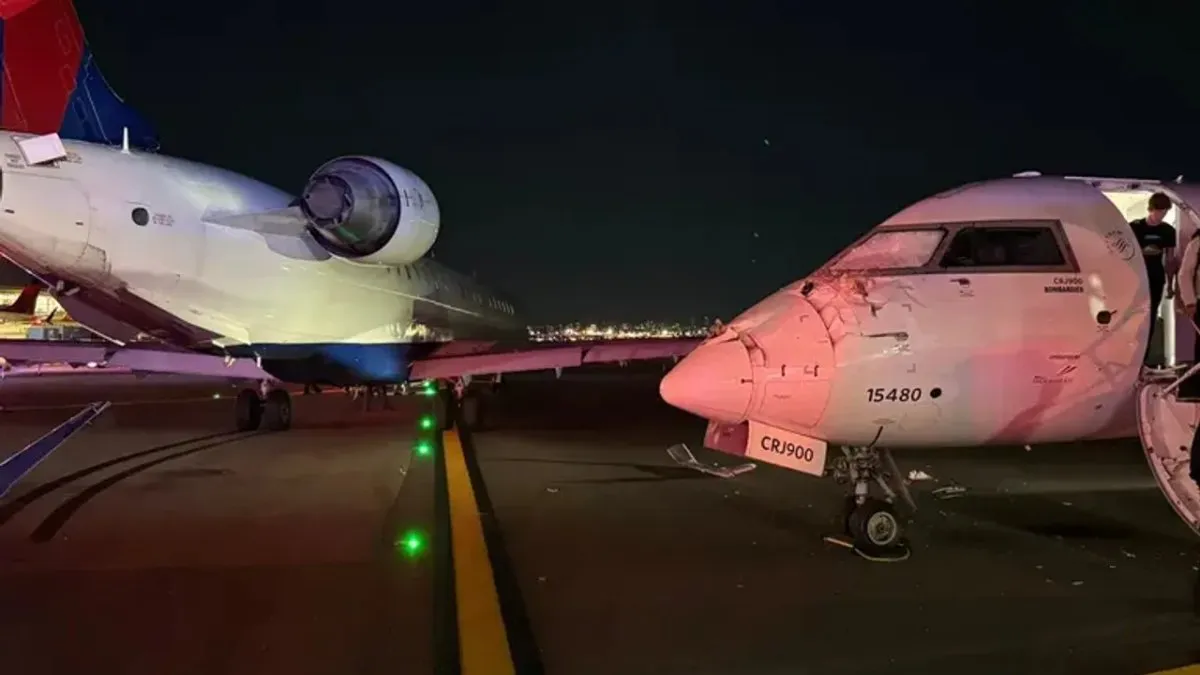“They fired so many rockets,” recalls Tamara Kavunenko, 58, speaking to AFP. She is part of the 4,300 inhabitants of Mariupol who fled this week to Zaporizhiain central Ukraine.
“When the snow came, we collected it and melted it for water. When not, we boil water from the river to drink it,” she says.
“In the streets are the bodies of many dead civilians,” he adds, before sentencing: “It is no longer Mariúpol. It’s hell”.
More than 2,000 people have so far been killed in the port city, a key strategic target for Russia, according to Ukrainian authorities.
On Thursday, Ukraine accused Russia of bombing a theater where hundreds of civilians had taken refuge, despite the word “children” being written on the front and back of the building, according to satellite images captured on March 14 by the company. Maxar private.
About 6,500 vehicles left the city in the last two daysVadim Boychenko, the mayor of Mariupol, said on Telegram in the early hours of Thursday.
Amid telecommunications blackouts, many of them escaped.
In a Soviet-era circus in Zaporizhia, a group of Red Cross volunteers wait for evacuees. Children’s shoes and blankets litter the floor.
Dima, his hands black with dirt, tells AFP that he hasn’t cleaned himself in two weeks. On her third attempt, she arrived in Zaporizhia on Tuesday with his wife and two children, she explains to AFP.
To feed the children and their grandparents, he explains that he had to loot stores in search of food.
“We lived underground and if it was -4º it was a good temperature,” he says. “Sometimes there were bodies in the street for three days,” she recalls.
“The smell is in the air and you don’t want your kids to smell it“, he adds.
Daria, who also fled Mariupol, said that for 10 days, she lived in the basement of her building with her baby.
“It got worse every day,” she says, holding her daughter. “We were without electricity, without water, without gas, without the means to exist. It was impossible to buy things,” she adds.
Marina, a volunteer with the Zaporizhia Red Cross, said the evacuees arrived in very bad shape.
The only way to escape the Russian siege was by private car. Many of those who arrived say that they could not leave the shelters because of the bombing and that they found a way to travel, luckily, since there was no telephone or internet signal either.
For some, the journey to Zaporizhia, which normally takes three or four hours, took more than a day.
A father of two children said he was able to pick up the signal after turning on the radio, giving him information about the humanitarian corridor.
Hugging his young son, Dmitri says they spent “nine or 10 days” hiding in the Mariupol theatre, the very one Ukraine says was bombed by Russian forces.
Source: Ambito
David William is a talented author who has made a name for himself in the world of writing. He is a professional author who writes on a wide range of topics, from general interest to opinion news. David is currently working as a writer at 24 hours worlds where he brings his unique perspective and in-depth research to his articles, making them both informative and engaging.




